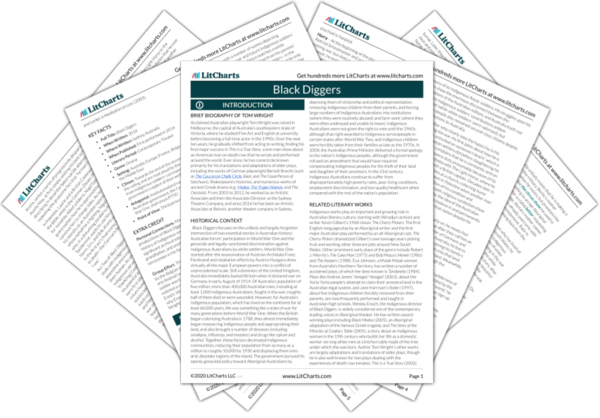The end of Col. Watego’s letter emphasizes how histories like
Black Diggers are meant to teach about “our journey to the present,” and how this story shows both the severity of the conditions Aboriginal Australians faced and their drive to overcome them, a full generation before conditions actually improved. It reminds Australians, in other words, that the struggle for Indigenous rights in their land is much longer than they might remember, relatively uninterrupted since colonial times, and largely made of everyday struggles for equality by those who are now forgotten or invisible.
